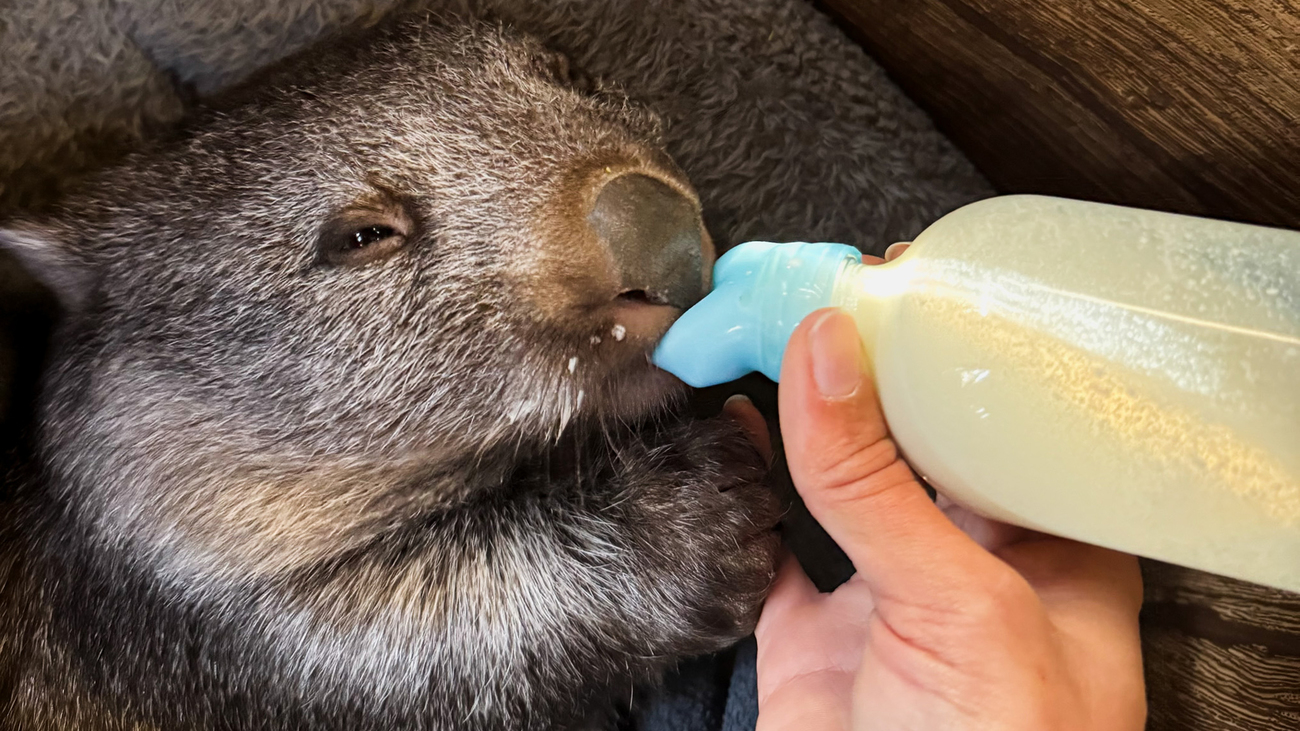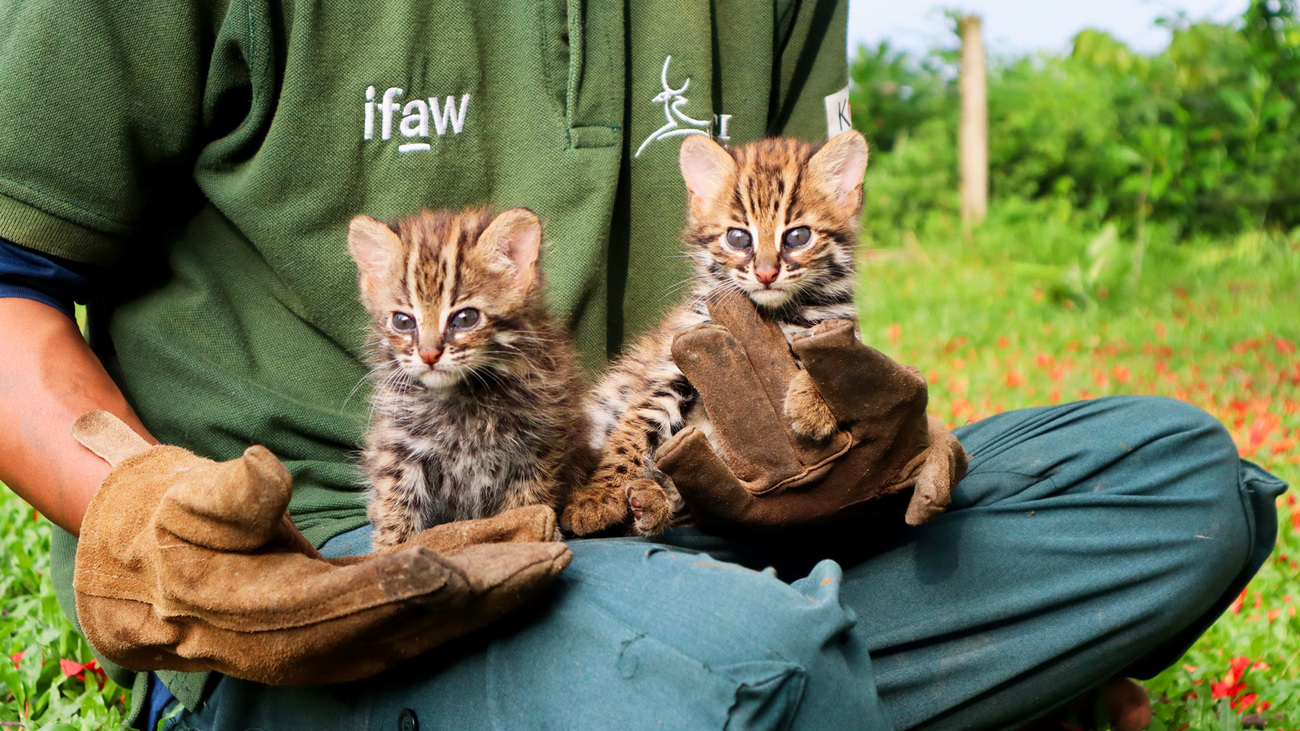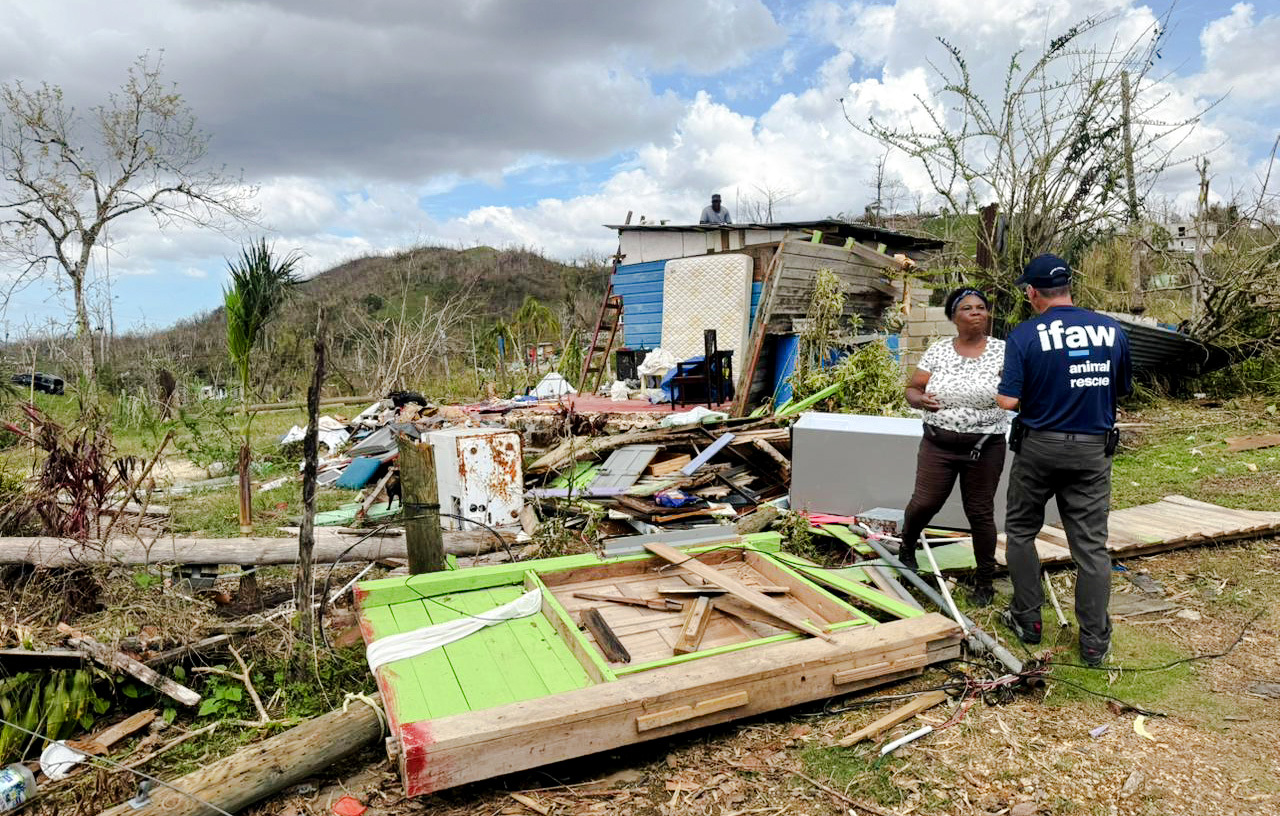Updates
How IFAW has helped animals and people during the Ukraine crisis
Learn moreTop 10 animal victories of 2025
Every individual animal matters—and every rescue begins with you. At IFAW, that belief drives everything we do, because saving one animal can change a whole world.
In 2025, your support helped us turn that belief into action. Together with partners around the world, we responded to crises, disrupted wildlife trafficking, and gave orphaned and injured animals a second chance in the wild. More than 252,000 animals were rescued and treated during global disasters. In India, 26 leopard cat kittens received life-saving care. In the Democratic Republic of the Congo, 94 African grey parrots were brought to safety after surviving the cruelty of international trade. Seventy-five stranded marine mammals found relief on the shores of Cape Cod, and 121 injured raptors received expert treatment in China.
Here are some of the stories that inspired us most—and remind us why your support matters.
In November, a released elephant named Chamilandu was spotted guiding her newborn calf to stand—unassisted and completely wild—in Zambia’s Kafue National Park. It was a moment of awe and affirmation: although she has raised a calf before, this is her first born entirely in the wild, supported by a herd of released and wild elephants including her six-year-old son, Mutaanzi David. Chamilandu was orphaned by poaching at just 18 months old, and her journey—from rescue to motherhood—is a living testament to what long-term protection makes possible. Her calf’s birth signals hope for Kafue’s elephants and highlights the need for ongoing support and protection.

Three-year-old Kamina was rescued from the illegal pet trade in Sankuru province in the Democratic Republic of the Congo. Now safe at Lola ya Bonobo sanctuary, she’s thriving under the care of our partners, Friends of Bonobos. Her rescue supports the broader survival of her species—bonobos are endangered, and every individual counts. Kamina is now beginning the slow, careful journey of rehabilitation that will one day lead her back to the wild.

In August, a wombat joey named Popcorn arrived at Bonorong Wildlife Sanctuary in Tasmania, Australia. She was quickly embraced by the sanctuary’s carers—and by supporters like you who made her care possible. Wombats are key ecosystem engineers, and Popcorn’s journey is part of a much larger story: protecting Australia’s native species through rescue, rehabilitation and habitat advocacy.

In February, IFAW and WTI rescued two Asiatic black bear cubs in Assam, India. Likely orphaned due to poaching, the cubs—named by our IFAW supporters as Duli and Atsu—were taken to the Centre for Bear Rehabilitation and Conservation. Hand-raised by foster carers, they’re now learning the skills they’ll need for survival in the wild. Their story is part of a broader effort to protect vulnerable bear species across Asia.
On 8 March, an Eurasian eagle-owl was rescued from Houhai Lake in Beijing after repeated crow attacks. The owl was seen swimming butterfly-style to escape, drawing viral attention online. Admitted to IFAW’s Beijing Raptor Rescue Center (BRRC), it was cared for and ultimately released on International Bird Day. It became the 100th eagle-owl released by BRRC—a major milestone for urban wildlife protection in China.

In September, IFAW’s marine mammal rescue team responded to multiple common dolphin strandings in Wellfleet, Massachusetts. One common dolphin sadly did not survive, but another was stabilised at our specialist Dolphin Rescue Center and released using IFAW’s newly upgraded response vehicle. Just days later, four more dolphins—two adults and two juveniles—were rescued nearby and successfully returned to open water. One was fitted with a satellite tag and is now transmitting healthy movements offshore. These rescues show how expert care, innovative tools, and rapid response can give marine animals a second chance.

Rescued as orphaned kittens in Arunachal Pradesh, India, three leopard cats were cared for at the Centre for Bear Rehabilitation and Conservation (CBRC), run by IFAW and the Wildlife Trust of India. By April, they were ready for in-situ acclimatisation inside the Pakke Tiger Reserve. Their story showcases how science-based rescue and release efforts—even for less well-known species—can help preserve native biodiversity.

When Hurricane Melissa, the strongest storm of the year, tore through Jamaica, it left a trail of devastation for people and animals alike. IFAW’s disaster response team immediately began coordinating with local partners, including Animal House Jamaica and the Jamaica Society for the Prevention of Cruelty to Animals. Together, they delivered food, clean water, and veterinary care to shelters and rescuers caring for stranded cats, dogs, and farm animals.
This work continues today, helping animals recover, rebuild, and find safety long after the storm has passed. Your support ensures IFAW can be there whenever and wherever disaster strikes
While individual animals will always be at the heart of our mission, 2025 also brought powerful wins that protect entire species. Thanks to supporters like you, we helped strengthen policies, restore vital habitats, and build systems that safeguard wildlife for generations to come.
In August, the DRC government adopted a ministerial decree giving full legal protection to African grey parrots—a major milestone for a species long threatened by trafficking for the exotic pet trade. With this decision, the capture, sale, transport and possession of wild African greys became criminal offences, supporting enforcement efforts and sending a powerful message across Central Africa.
This year also saw major progress for ocean wildlife as the High Seas Treaty reached the number of ratifications needed to move toward entry into force. Once implemented, the treaty will enable the creation of protected areas in international waters and strengthen safeguards for marine species that travel far beyond national borders. It’s a pivotal step toward securing healthier oceans for whales, dolphins, seabirds, and countless other animals that depend on these vast, vulnerable ecosystems.
From bonobos and bears to wombats, dolphins, and koalas, every animal’s recovery is made possible by people who care. Thank you for standing with IFAW in 2025—and for helping us create a future where animals and people can thrive together.
Every problem has a solution, every solution needs support.
The problems we face are urgent, complicated and resistant to change. Real solutions demand creativity, hard work and involvement from people like you.
Unfortunately, the browser you use is outdated and does not allow you to display the site correctly. Please install any of the modern browsers, for example:
Google Chrome Firefox Safari